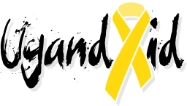Helen and Gill's visit with Hospice Jinja
/We had the enormous privilege of going out into rural villages with the Hospice Jinja palliative care team. Most people die of HIV/Aids, Cancer, accidents etc. We learnt that only 5% of Ugandans get access to cancer treatments and there is only one cancer centre in Uganda (in Kampala). Cancer treatments have to be paid for, and patients have to bring their own carer and food. This means that most people cannot access treatment and die from their cancer; for women this is mostly cervical and breast cancers.
We visited one young man called Awal who was 31. He had started chemotherapy for his Hodgkins Lymphoma but could only afford a few treatments so had to stop – he is now dying, and for the sake of just £100! We visited a number of people with AIDS, some who had developed cancers as a consequence – many who struggled to get their drugs either because they had no one to travel to the local health clinic to get them for them or for some struggled to comply with the regime. However we visited one 21 yr old lady who commenced HIV treatment and had radically improved.
We visited a lady with rectal cancer who could not sit down. The nurse suggested we examine her. Laid on a dusty floor in a dark room we saw her rectal tumour had eroded most of the left check of her bottom. She had no pain killers and no dressings on her wound. The team left her with some oral morphine liquid (the only form of strong analgesia they have), Paracetomol, Amitriptyline and a laxative. We also left a food parcel as she had very little food. Another lady we visited had a rectal cancer with a fistula (hole between her rectum and vagina) but had no pads and pants to preserve her dignity.
Each day started with a hymn, scripture and prayer followed by a team meeting discussing patients seen the previous day. We travelled between 180-200kms in a 4x4 truck, mostly off road (dirt tracks) leaving the office at around 10:00 and returning between 18:30-19:30. We visited 9-10 patients each day. The team can see the huge need for cervical screening (as 40% of female cancers are cervical) and already just using physical examination (no access to smear tests) they have identified 10% of those screened and been able to refer them on for testing and treatment. They have a huge task to dispel myths and fears about screening amongst village women.
As a result of our visit we are hoping to connect Hospice Jinja with Gospel Cross ministry because they do health education in schools so there is potential for them to help in dispelling myths about cancer screening. Also we plan to put them into contact with NVI/Ugandaid because the hospice team are in contact with patients whose children are left orphaned and vulnerable - just the sort of children/young people whom UgandAid want to reach.


